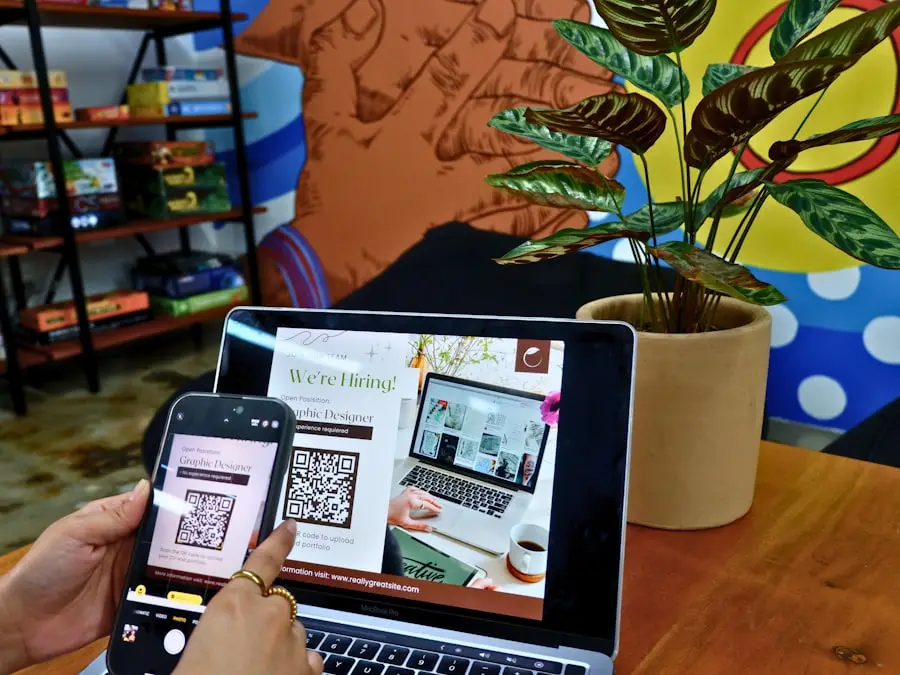Business development is a multifaceted discipline that encompasses a variety of strategies aimed at fostering growth and increasing revenue for an organization. At its core, business development is about identifying new market opportunities, building relationships, and creating value for both the company and its clients. It is essential for businesses to understand that development is not merely about sales; it involves a holistic approach that includes marketing, strategic partnerships, and customer relationship management.
By recognizing the importance of business development, organizations can position themselves to adapt to changing market conditions, respond to customer needs, and ultimately achieve sustainable growth. Moreover, the significance of business development extends beyond immediate financial gains. It plays a crucial role in establishing a brand’s reputation and credibility within its industry.
A well-executed business development strategy can lead to increased visibility, enhanced customer loyalty, and a stronger competitive edge. In today’s interconnected world, where consumers have access to vast amounts of information, businesses must prioritize their development efforts to differentiate themselves from competitors. This differentiation often comes from the relationships built through networking, which can lead to valuable partnerships and collaborations that drive innovation and open new avenues for growth.
Key Takeaways
- Business development is crucial for the growth and success of any company.
- Networking opportunities can be found in various places such as industry events, trade shows, and professional organizations.
- Social media and online platforms are powerful tools for connecting with potential clients and partners.
- Building relationships through networking events and conferences can lead to valuable business connections.
- Utilizing referrals and recommendations can help expand your network and bring in new business opportunities.
- Following up and maintaining relationships is essential for long-term networking success.
- It’s important to measure and evaluate the success of your networking efforts to make informed decisions for future business development strategies.
Identifying Potential Networking Opportunities
Identifying potential networking opportunities is a critical step in the business development process. Networking can take many forms, from formal events such as conferences and trade shows to informal gatherings like local meetups or social events. To effectively identify these opportunities, businesses must first understand their target audience and the environments in which they operate.
This involves researching industry-specific events, joining professional organizations, and engaging with community groups that align with their business goals. By being proactive in seeking out these opportunities, organizations can position themselves to connect with key stakeholders who can influence their growth trajectory. In addition to traditional networking events, businesses should also consider leveraging online platforms to identify potential connections.
Social media channels like LinkedIn provide a wealth of opportunities for professionals to engage with others in their industry. By participating in relevant discussions, joining groups, and sharing valuable content, businesses can increase their visibility and attract potential partners or clients. Furthermore, attending webinars or virtual conferences can also serve as an effective way to network without geographical limitations.
By diversifying their approach to networking, organizations can uncover a broader range of opportunities that may lead to fruitful collaborations and partnerships.
Leveraging Social Media and Online Platforms

In the digital age, social media and online platforms have become indispensable tools for business development and networking. These platforms allow businesses to reach a wider audience than ever before, enabling them to connect with potential clients, partners, and industry influencers across the globe. By creating a strong online presence through engaging content and active participation in discussions, organizations can establish themselves as thought leaders in their field.
This not only enhances their credibility but also attracts individuals who are interested in collaborating or seeking services offered by the business. Moreover, social media platforms provide unique opportunities for targeted networking. Businesses can utilize advanced search features on platforms like LinkedIn to identify specific individuals or companies that align with their goals.
By engaging with these prospects through personalized messages or comments on their posts, organizations can initiate meaningful conversations that may lead to valuable connections. Additionally, online networking events and webinars have gained popularity, allowing professionals to connect in real-time regardless of location. By embracing these digital tools, businesses can expand their networking efforts beyond traditional boundaries and tap into new markets.
Building Relationships through Networking Events and Conferences
Networking events and conferences serve as vital platforms for building relationships that can significantly impact business development. These gatherings provide an opportunity for professionals to meet face-to-face, exchange ideas, and establish rapport in a more personal setting. The value of in-person interactions cannot be overstated; they foster trust and create a sense of connection that is often difficult to achieve through digital communication alone.
Attending industry-specific conferences allows businesses to engage with potential clients and partners while also gaining insights into market trends and competitor strategies. To maximize the benefits of networking events, it is essential for participants to come prepared with clear objectives and an open mindset. This means setting specific goals for what they hope to achieve during the event—whether it’s meeting a certain number of new contacts or learning about emerging trends in their industry.
Additionally, effective networking requires active listening and genuine engagement with others. By showing interest in others’ experiences and challenges, businesses can create lasting impressions that pave the way for future collaborations. Ultimately, the relationships built at these events can lead to referrals, partnerships, and new business opportunities that drive growth.
Utilizing Referrals and Recommendations
Referrals and recommendations are powerful tools in the realm of business development, often serving as a catalyst for new opportunities. When a satisfied client or partner refers a business to someone in their network, it carries significant weight because it comes with an inherent level of trust. This trust can shorten the sales cycle and increase the likelihood of conversion since potential clients are more inclined to engage with businesses that have been recommended by someone they know.
Therefore, cultivating strong relationships with existing clients is crucial; businesses should actively seek feedback and encourage satisfied customers to share their positive experiences within their networks. In addition to client referrals, businesses should also consider leveraging recommendations from industry peers or influencers. Building relationships with thought leaders in one’s field can lead to mutually beneficial partnerships where both parties promote each other’s services or products.
This not only expands reach but also enhances credibility within the industry. Furthermore, creating referral programs that incentivize existing clients or partners to refer new business can be an effective strategy for driving growth. By actively utilizing referrals and recommendations as part of their business development strategy, organizations can tap into new markets while reinforcing their reputation as trusted providers.
Following Up and Maintaining Relationships

Following up after initial networking interactions is crucial for maintaining relationships that can lead to future business opportunities. Many professionals make the mistake of viewing networking as a one-time event rather than an ongoing process. After meeting someone at a conference or event, it is essential to reach out within a few days while the interaction is still fresh in both parties’ minds.
A simple follow-up email expressing gratitude for the conversation and suggesting a future meeting can go a long way in solidifying the connection. This proactive approach demonstrates genuine interest in building a relationship rather than merely collecting contacts. Maintaining relationships over time requires consistent effort and engagement.
Businesses should regularly check in with their network through personalized messages or by sharing relevant content that may interest them. This could include articles, industry news, or invitations to upcoming events that align with their interests. Additionally, celebrating milestones such as promotions or achievements within one’s network fosters goodwill and strengthens connections.
By investing time in nurturing these relationships, organizations can create a robust network of advocates who are more likely to refer business or collaborate on future projects.
Measuring and Evaluating the Success of Your Networking Efforts
To ensure that networking efforts contribute effectively to business development goals, it is essential to measure and evaluate their success regularly. This involves setting clear metrics that align with specific objectives—such as the number of new contacts made, referrals received, or partnerships established—as well as qualitative assessments like the strength of relationships built over time. By tracking these metrics, businesses can gain insights into which networking strategies are most effective and where adjustments may be needed.
Furthermore, evaluating networking success should also include gathering feedback from contacts within one’s network. Engaging in conversations about how connections perceive the value of interactions can provide valuable insights into areas for improvement. Additionally, analyzing the return on investment (ROI) from networking activities—such as increased sales or new partnerships—can help justify continued investment in these efforts.
Ultimately, by measuring and evaluating networking success systematically, organizations can refine their strategies over time and ensure that they are maximizing the potential of their networking endeavors for sustained business development growth.
If you’re interested in learning more about expanding your professional network through business development, you might find additional valuable insights in a related article on the Business Impact Group’s website. Explore various strategies and tips on professional networking by visiting this link. This resource can provide you with further guidance on how to effectively grow your network and leverage business development opportunities in your professional journey.
FAQs
What is business development?
Business development is the process of creating and implementing growth opportunities within and between organizations. It involves creating long-term value for an organization from customers, markets, and relationships.
Why is business development important for expanding your professional network?
Business development is important for expanding your professional network because it involves building and nurturing relationships with potential clients, partners, and other industry professionals. By engaging in business development activities, you can increase your visibility and credibility within your industry, leading to more opportunities to connect with new contacts.
What are some strategies for using business development to expand your professional network?
Some strategies for using business development to expand your professional network include attending industry events and conferences, joining professional organizations, leveraging social media and online networking platforms, and participating in networking events and activities.
How can business development help in building strong professional relationships?
Business development can help in building strong professional relationships by providing opportunities to engage with potential clients, partners, and industry professionals. By consistently demonstrating value and expertise, you can build trust and credibility, leading to stronger professional relationships.
What are the benefits of expanding your professional network through business development?
Expanding your professional network through business development can lead to a range of benefits, including increased opportunities for collaboration, access to new clients and markets, industry insights and knowledge sharing, and potential for career advancement and personal growth.
